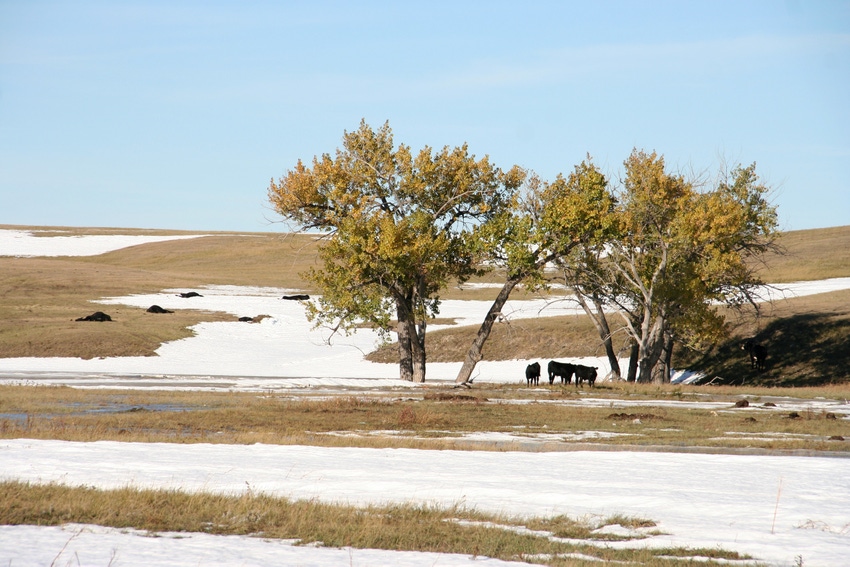South Dakota Rancher Recounts The Lessons Of Winter Storm Atlas
October's winter storm Atlas barely raised a blip on the mainstream media, and what coverage there was died quickly.
December 26, 2013

There are certain moments in the beef industry’s history that U.S. cattle producers aren’t likely to forget anytime soon.
For instance, December brings back memories for me of the “cow that stole Christmas.” This, of course, refers to the first case of BSE in the U.S. in 2003.
Meanwhile, April 2012 will always remind me of when the industry was “pink-slimed.” And, after this past fall, when I think of 2013, I’ll probably reminisce about the freakish winter storm called Atlas that hit my home state of South Dakota in early October.
The early fall blizzard dumped up to 5 ft. of snow driven by 70-mph wind gusts in some areas. Impacted was western South Dakota and parts of adjoining states. Tens of thousands of cattle, sheep, horses and bison perished in the freak storm, with its total cost projected to amount to $1 billion. Thankfully and heroically, individual producers and organizations across the country generously opened their hearts to help those affected by the devastating storm.
While hurricanes on the East Coast get months and months of coverage, this Great Plains weather event was largely ignored. Winter storm Atlas barely raised a blip on the mainstream media, and what coverage there was died quickly.
Another thing I found surprising in the storm’s aftermath, and almost as concerning, was the response by some in the public. It was disappointing to read some of the comments from readers in response to mainstream news reports from the blizzard. Here’s a sampling:
Didn’t everyone know this storm was coming? Why weren’t they better prepared?
Why were all the cattle out in the open and not moved into barns?
If cattle are used to being outside in the winter, why was this storm such a big deal?
Why didn’t everyone just move their cattle to winter pastures before the storm hit?
It seems odd that so many cattle would die. Didn’t the ranchers try to save them?
Don’t ranchers already get a lot of subsidies and price supports from the government?
Ranchers are all rich anyway, so what’s the big deal?
Aren’t the ranchers just looking for a handout?
Ranchers raise these animals for slaughter, so they don’t really care about them anyway. Isn’t it all about the money?
I don’t have the space here to address all these comments and questions, but I think it’s clear that there is a lot of need for education of the public about not only how their food is produced, and the inherent challenges, but also the deep emotional bond that cattle producers feel for their animals. And the only people who can get this done effectively are those of us engaged in the business of raising cattle.
Of course, there were also very positive comments and strong expressions of support and sympathy expressed online regarding winter storm Atlas and its effect on ranchers and the lost cattle. But the common thread among negative comments was that ranchers are lazy, greedy and careless. We know this is patently false, but I was still appalled to read comments like that coming from not only consumers but from other ranchers across the country.
As we move on from the blizzard of 2013, there is an important lesson for those of us in agriculture to take to heart. There are many misconceptions out there about the beef business and food production in general. And as consumers’ first-hand familiarity with production agriculture continues to shrink, it will become increasingly more important for livestock producers to look beyond our own pasture gates and invest the time that is needed to educate consumers about where their beef comes from.
Our industry needs to focus on education and consumer outreach. We know the role of the rancher in the well-being of his or her livestock is critically important, but just as important is our responsibility to share that message and our positive story with consumers.
Amanda Radke is a South Dakota rancher and editor of BEEF Daily.
About the Author(s)
You May Also Like




.png?width=300&auto=webp&quality=80&disable=upscale)
